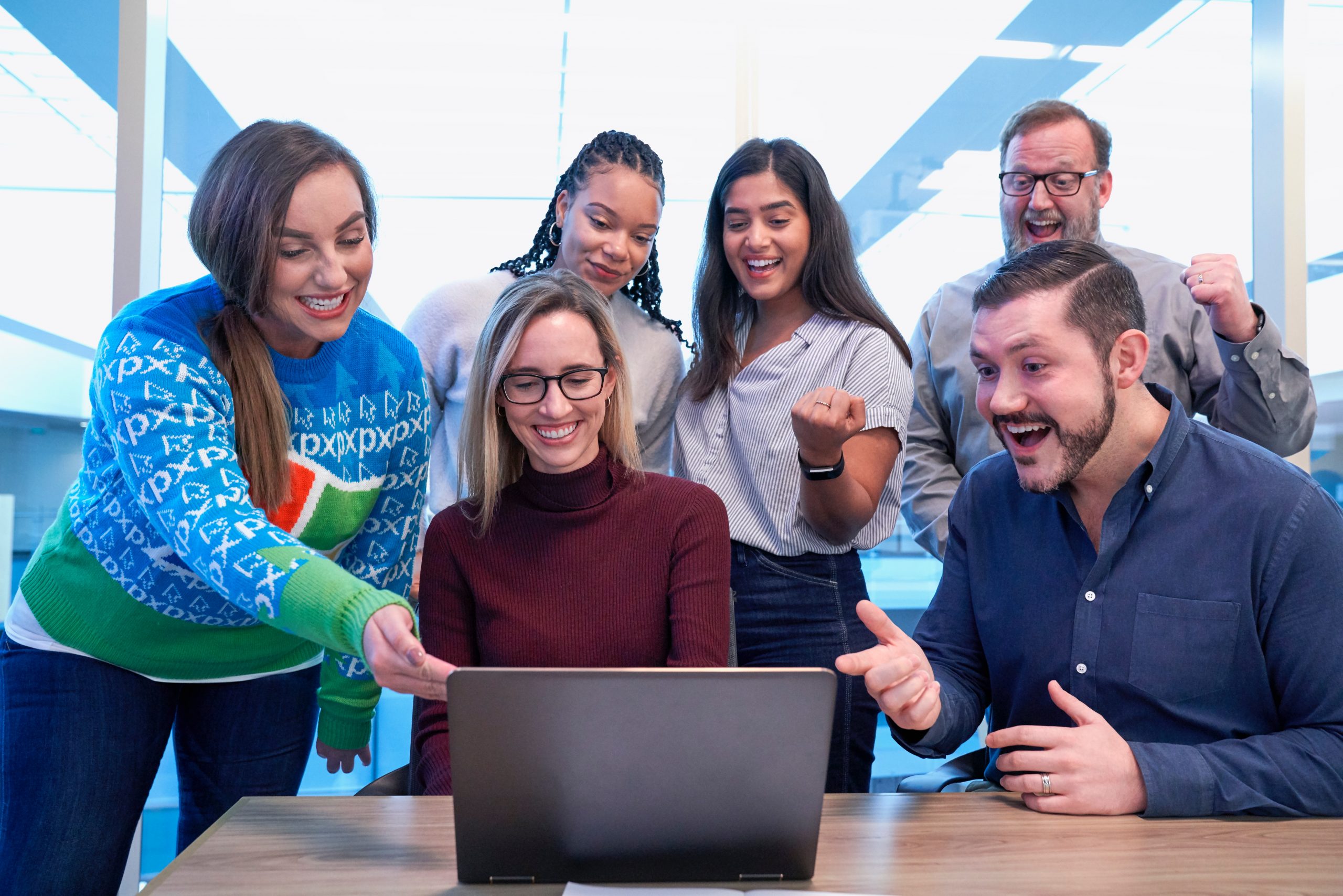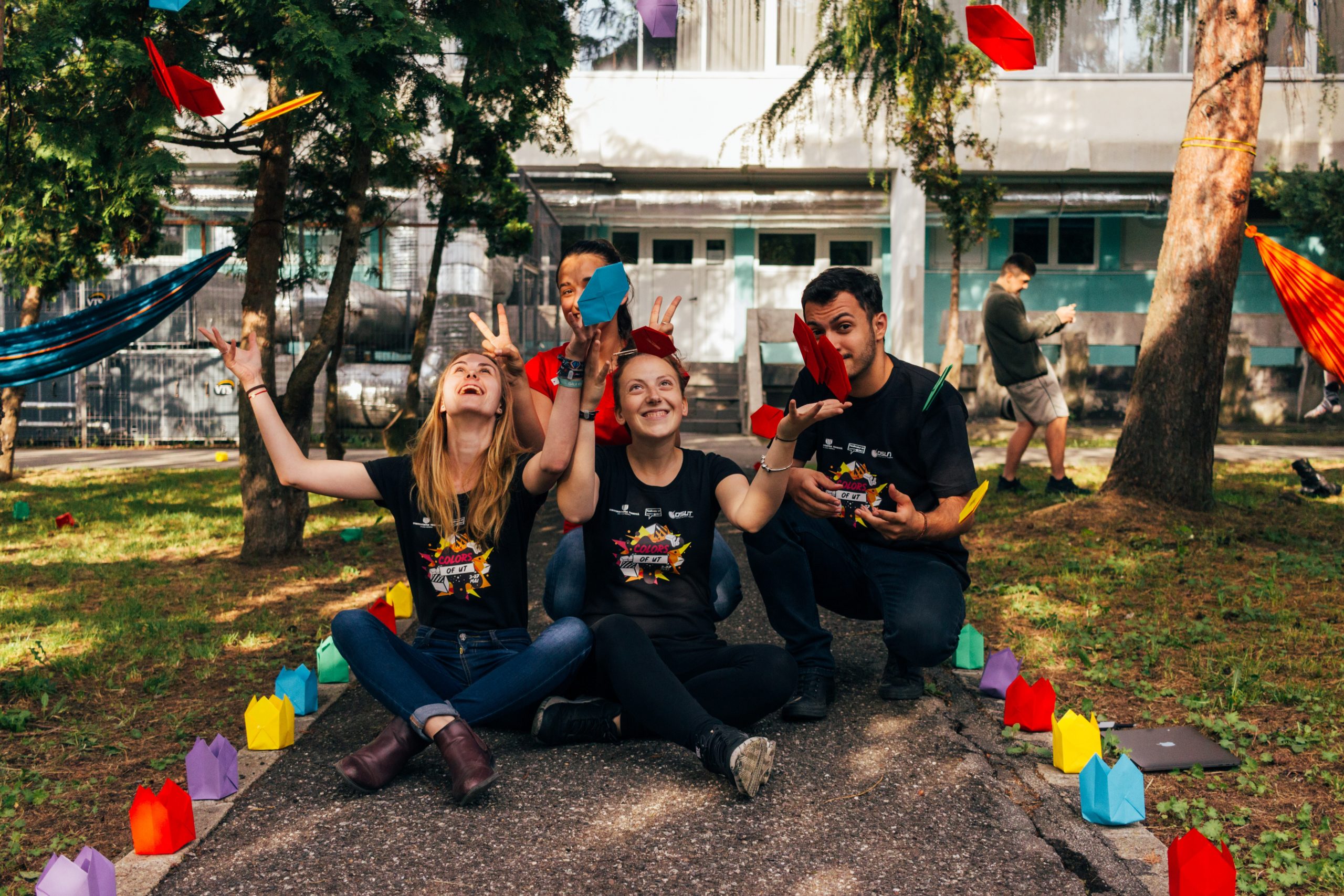
Career Briefs
January 21, 2015
Hot Links: Great resources for global careerists
January 21, 2015By Benoîte Labrosse
Many non-governmental organizations (NGOs) provide young Canadians with the opportunity to volunteer abroad, as long as they can be successful in getting selected
The selection of volunteers happens after a process that can go from a few weeks to a few months, and even though every NGO has its own criteria, the steps are essentially similar.
First and foremost, determine your goals and skills
“Volunteering abroad is a sociological extreme sport,” says Suzanne Ouellet, who is responsible for training and mobilizing volunteers for the Uniterra program at the Centre for International Studies and Cooperation (CECI). “You really have to want to get into difficult situations and have the ability to adapt to anything.”
The future volunteer must question himself or herself: Do they have a sufficiently open mind, the needed flexibility and enough taste for adventure? Do they want to go alone or as part of a group? Prospective volunteers must also think about the level of commitment they are willing to sign up for. Some programs run for one year, ask for pre-departure involvement and/or carrying out activities upon their return and can include fundraising. Length of stay abroad also varies widely.
The person has to choose between a basic international experience or a project that requires professional skills. In the latter case, diplomas, expertise and years of experience are required. Other programs require volunteers to be students or recently graduated.
It’s also important to understand the mission and operations of the chosen NGO, as well as the host country one is headed for. Research is needed, including on the website of the organization and that of the federal Centre for Intercultural Learning. “You have to be interested by the whole experience: the topic of the internship, the host country, the partner organization in said country and the NGO partner in Canada” says Julie Larocque, who supports youth programming at Development and Peace.
Preselection: Showcasing yourself on paper
The Internet is the best tool for identifying international volunteer opportunities, either by visiting NGO sites or specialized portals such Myworldabroad.com and Quebecsansfrontieres.com (in French).
Moreover, most organizations only accept online applications. They will first examine the candidate’s resume, as well as their application letter or their answers to a questionnaire. The latter deals with prior volunteer, travel and group life experiences.
“Young people often have interesting backgrounds, but don’t know how to showcase it,” says Alex Chevalier-Caron, Deputy for the Québec Sans Frontière (QSF) internship program at Oxfam-Québec. Yet, years spent with Scouts or Guides, volunteering and excursions can have a lot of weight in the decision to invite a candidate or not for an interview. It’s the goal of this step in the selection process to ensure that the candidates meet the organization’s basic criteria.
For entry-level placements, “the application letter is more important than the resume,” says Maude Gilbert-Vanasse, a training facilitator for the QSF program at CECI. Candidates’ reflections around the concept of making an international contribution are also taken into account, “because wanting to help is not enough,” says Development and Peace’s Larocque.
However, for professional placements, qualifications become more important and references are required. “Even if it was an excellent letter and you have good references, if the CV does not match what the organization needs, it is very difficult to be chosen,” warns David Forest, Manager, Volunteer Delivery at Cuso International.
Individual interviews: Selling yourself
Interviews will vary depending on whether the volunteer travels alone or as part of a group. For solo placements, it’s generally a standard job interview, which lasts about an hour. “This interview helps us learn about an individual’s personality and his ability to get along in a developing country, and also to gauge his interest in other cultures,” explains Jean-Yves Bourdages, CEO of Engineers Without Borders Quebec (ISFQ). The interview contains several case scenarios to judge the candidate’s reaction to unexpected situations.
The interview can also be used to build a file for the host country partner organization, which will be responsible for the final selection of the candidate. “Sometimes the organization participates in the interview via Skype, which speeds up the process,” says Ouellet of CECI. Sometimes, the process starts with a preliminary telephone interview. “This is a joint review of the application, but also an information session to ensure that people realize what they are getting into,” Cuso’s Forest says.
For group placements, even if the content of the individual interview is similar, the goal is different: it is mainly used to verify the evaluators’ perceptions from the earlier group interview (see below). “This step also allows those who struggle to showcase themselves in a group setting to regain value,” says Chevalier-Caron of Oxfam-Québec. “We want to know what the candidate believes he or she can bring to the group and to the project,” says Larocque of Development and Peace.
In any case, if the local language of the host community is not the volunteer’s, the NGO will test the candidate’s knowledge of it. “We have a discussion to see how the candidate is doing,” says Bourdages of Engineers Without Borders. Sometimes the full interview takes place in the host language. Other times, a single question is asked.
Group interviews: Practising collaboration and tolerance
The goals of the group interview also vary depending on the type of placement. In some cases, they are not part of the assessment process.
For Cuso, the goal is to check if applicants meet the “six dimensions” of the organization, which are actually interpersonal skills considered essential to international volunteering. Candidates meet for an “evaluation day,” during which they are required to discuss their personal motivations and challenges, and then perform a series of group exercises, including case studies.
Only during the lunch period – provided by Cuso – can the candidate “relax a bit,” according to Cuso’s Forest, a luxury that candidates for group placements don’t have. For Oxfam and CECI, as well as for Development and Peace, they can expect an impromptu potluck – with some form of deprivation or challenge, such as an insufficient amount of cutlery. The lunch hour is indeed used to observe the reactions of candidates in destabilizing situations. “This is a truly revelatory period,” says Gilbert-Vanasse of CECI.
This lunch hour follows a morning of group exercises, generally grouping candidates for the same placement. “Activities change every year, but the goal remains the same: to see the candidates’ personal reflection process, but also their behaviour in group situations,” says Larocque of Peace and Development. Crafts, simulations, games…all of their actions are monitored by observers, whose impressions will be validated during the subsequent individual interviews. “People tend to look for the right answer, but there is none, says Chevalier-Caron of Oxfam-Québec. What we are seeking above anything else are good human beings.”
“During the selection day, you find yourself with people who you might not connect easily with, but you have to develop your tolerance: it starts then and it never ends!” says Larocque with a laugh, herself a former selected candidate from the QSF program, like Chevalier-Caron and Gilbert-Vanasse.
Sometimes, good candidates must be put aside in order to form an effective group. “We can offer these candidates a spot in another placement, or keep them on a recall list,” says Chevalier-Caron.
The formalities
Once a candidate has been through all these steps, he must go to a doctor, who must then certify in writing his ability to live in his country of assignment. If the practitioner has doubts, the adventure ends here, mainly for insurance reasons.
“There are no actual limitations, but you still have to think about certain things: a peanut allergy will make your life difficult in West Africa, for example,” notes Larocque. Occasionally, a similar authorization must be obtained from a dentist, and some NGOs do a criminal record check.
Be careful! The selection process never ends…
For every NGO, the selected candidates must then take part in pre-departure training, which can go from two days to a few weekends. There, candidates are still observed by the NGO staff, which can detect certain harmful behaviours that could put an end to the placement. “Even if they go alone, volunteers must perform team work during the training, says Ouellet of CECI. Then we can see if there is something wrong, even if it is rare.”
Generally, it is actually the candidates who drop out during the process. “There is a lot of work to do before you go, so you have to be motivated and willing to work in the long term, which does not suit everyone,” notes Bourdages of Engineers Without Borders.
“We try to be as clear as possible about what is required, because dropouts along the way have a negative impact on the group, and we must return to the selection process,” says Development and Peace’s Larocque, adding that these withdrawals can give a second chance to candidates who were put aside after group interviews.
Benoîte Labrosse is a freelance journalist based in Montreal. She contributes to Protégez-Vous and Les Affaires, among other publications. She is the Associate Editor of the international magazine Sans Frontières and secretary-treasurer of the Quebec Professional Federation of Journalists (FPJQ).
Three pieces of expert advice to get selected
- Get a head start. There is often several months between the candidate’s selection and the departure. It is therefore essential to start proceedings early, up to a year before the departure date.
- Know yourself. “One of the key factors is the knowledge that the candidates have of themselves, says Suzanne Ouellet of the Centre for International Studies and Cooperation (CECI). Emotional maturity will often make the difference between selection and rejection.” Candidates must have a clear idea of the reasons why they are there and where this experience will lead them.
- Be yourself. “In an interview, the key is not to try to please anyone and be yourself,” says Alex Chevalier-Caron, Oxfam-Québec. For group placements, it is essential to be honest from the start “because you’re going to spend two and a half months with the same people, so your true personality will come out eventually,” says Julie Larocque of Development and Peace.

